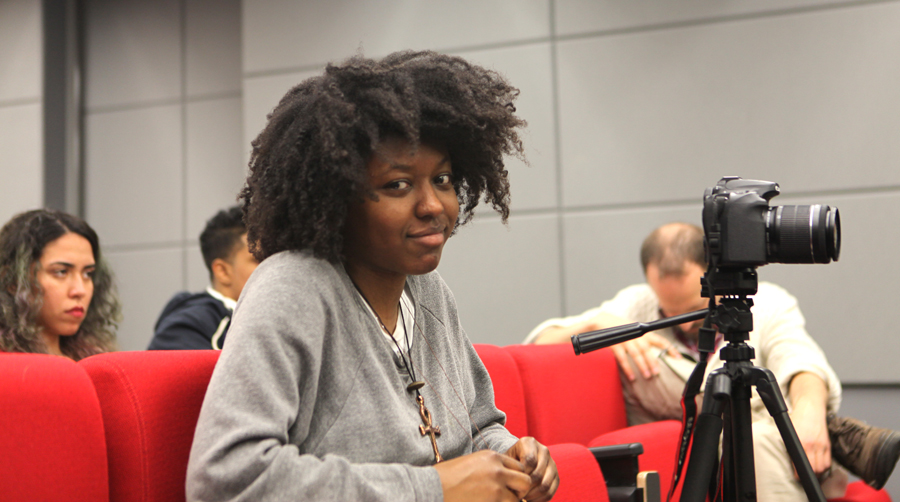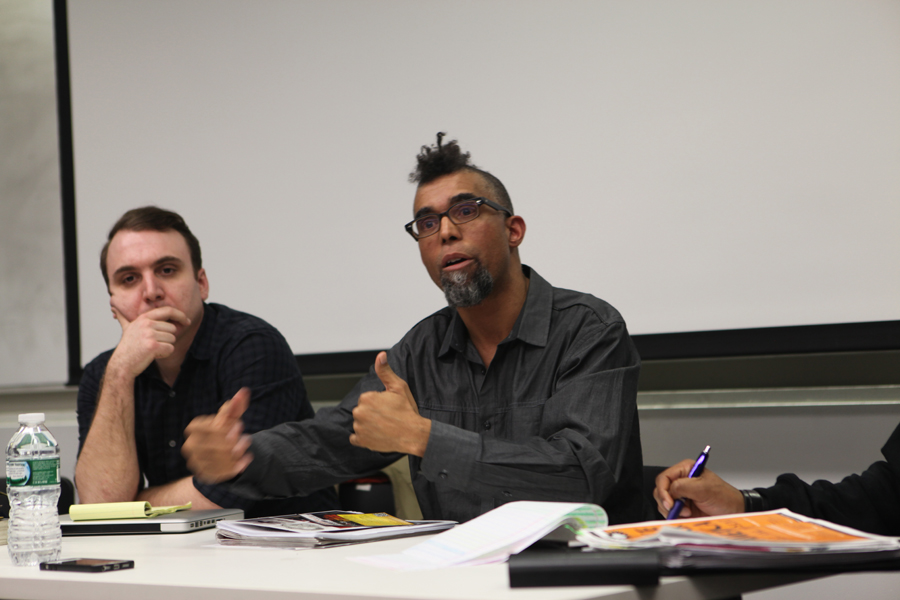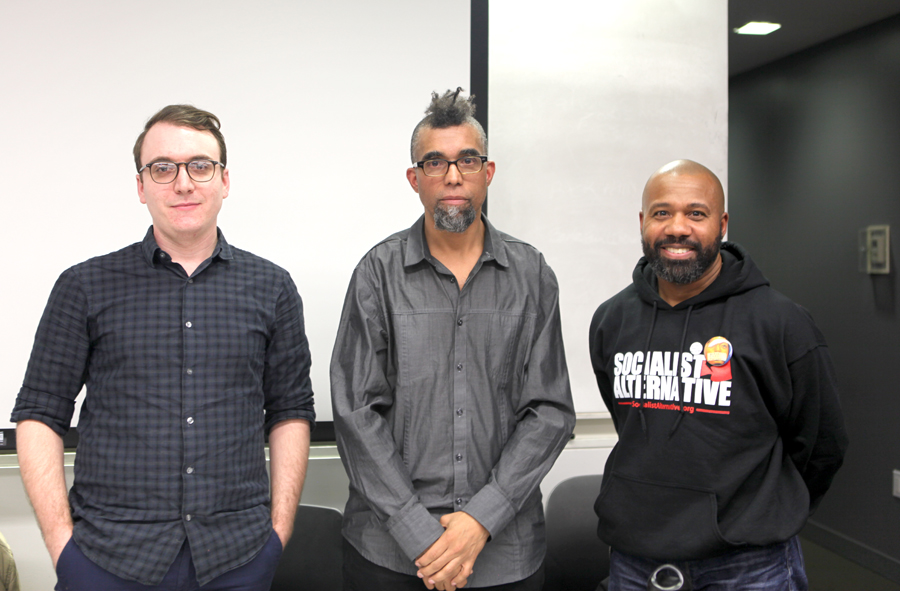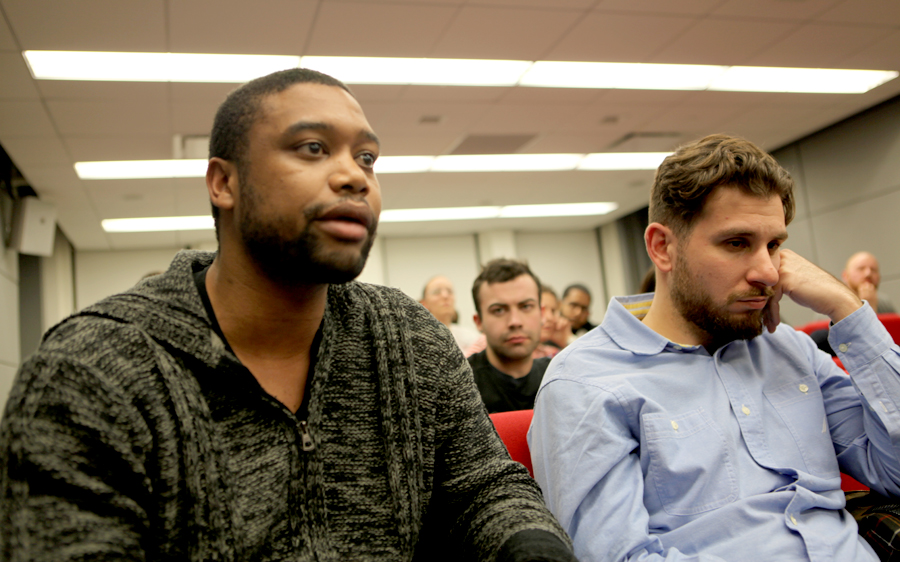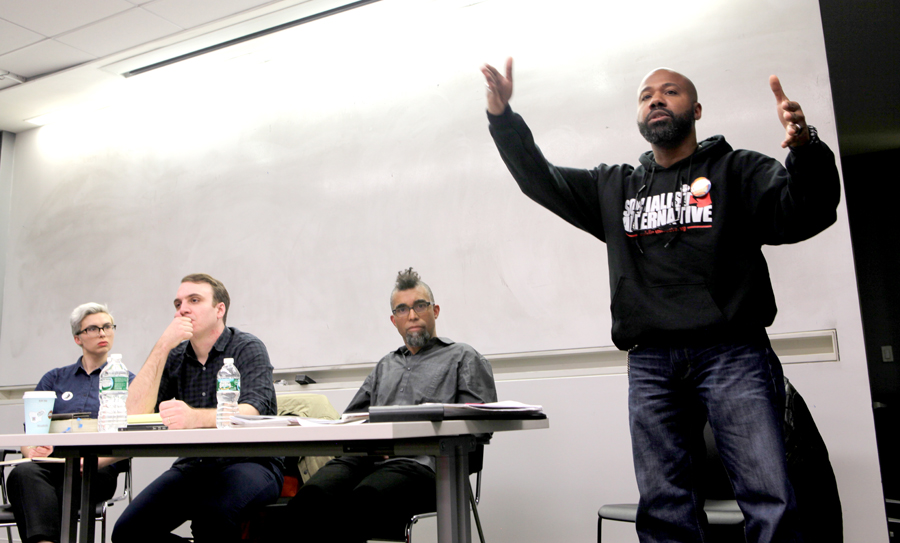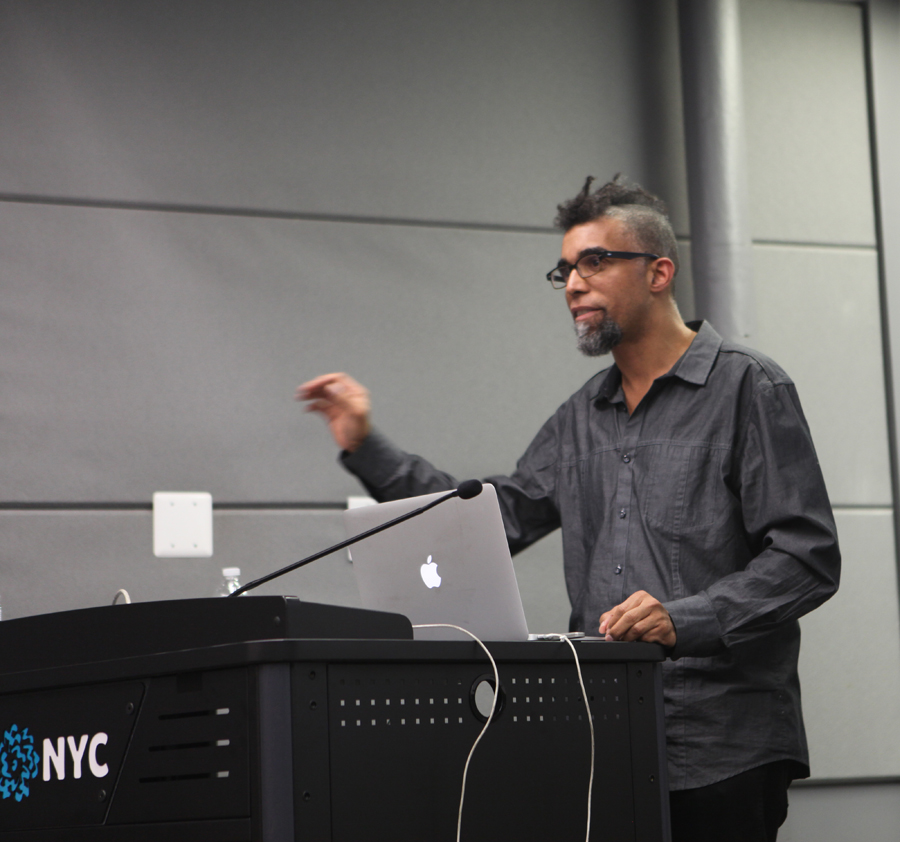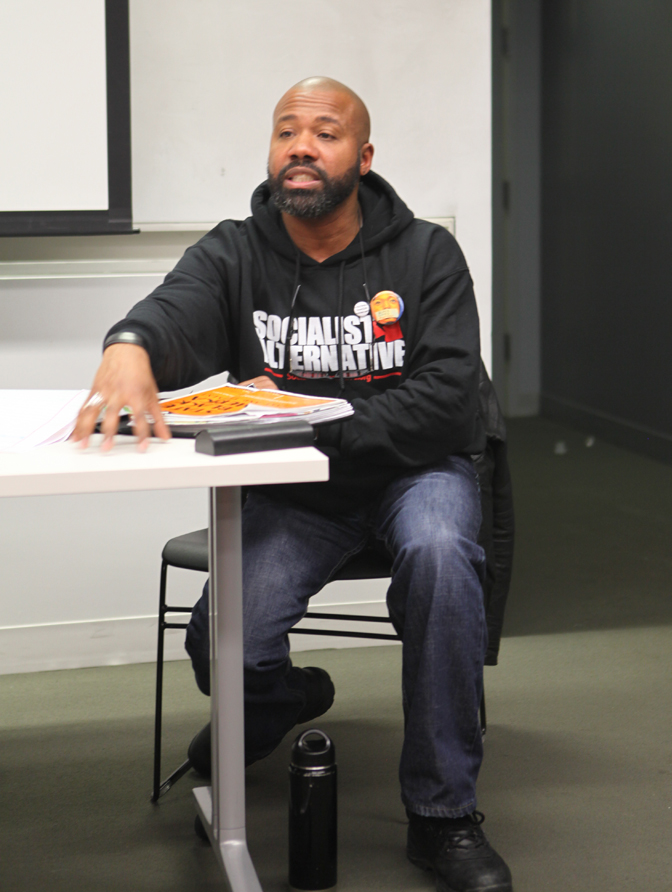Hosted by the Platypus Affiliated Society in conjunction with
the SVA Black Student Union
Panelists:
Ben Blumberg (Platypus Affiliated Society)
Eljeer Hawkins (Socialist Alternative/CWI)
Dread Scott (Artist)
Moderated by: Allison Hewitt Ward (Platypus)
Introduced by: Tiffany Freeman (SVA Black Student Union)
11th March 2015
School of Visual Arts
136 West 21st Street
Room 418F
The widely publicized killings of black men by
police and the resulting movement with its slogan “Black Lives Matter” puts
back on the agenda of a beleaguered American Left a seemingly perennial
question, one that evokes a long history of struggle, longing, and
disappointment. With a black president in the White House having survived or co-opted the #Occupy Movement, the Black Question seems to pose a return to the old platitude that America is racist. At the same time, precisely because of recent history it seems necessary to resist a complacency that threatens to obscure the precise nature of the present, not to mention an adequate analysis of how the Left got where it is today. Such skepticism would appear doubly warranted in light of the fact that the Democrats seem way out in front of this movement, likely soon to have all the necessary police officials and the black vote duly lined up on their side. Given these circumstances and the dangers of yet another historical round of disappointment, another course in diminishing expectations and demobilization, now would seem an opportune moment to reflect
on how this movement might indeed be transformed into the herald of a genuine revival of the Left here in the United States, where it is so badly needed.
A talk and guided discussion held at Left Forum 2013, at Pace University, on June 8th, 2013.
Description:
If it is true that the 'commodity-structure' (Lukacs) is the defining feature of modern capitalism down through the present, then it stands to reason that it has no less impacted the way art is produced, consumed, circulated, and exchanged. This shift in art's character happened both objectively (e.g., as in an article produced for exchange on the market), and subjectively (i.e., as a kind of experience and form of expression for the social and individual body). However, art's relationship to its status as a commodity is an ambivalent one: Art has become at once more free from past forms of domination, but its freedom is constrained when subject to the dynamics of capital. Art as a commodity is both its cure and poison, and has become a social problem for its practice. Since becoming aware of this problem, artists, philosophers, curators, and critics have taken various approaches in seeking to overcome it. How has art under a capitalist society changed from its pre-capitalist practices? What is the commodity-form, and what is art's relationship to its logic? Must art seek emancipation from the commodity-form, or is it at home in it? In what sense does art take part in the Left and emancipatory politics -- a practice also seeking to overcome the commodity-form -- if at all? By asking these questions, this panel seeks to reinvestigate art's relationship to the commodity form, and make intelligible how this problematic relationship still sticks with us today.
Discussion Questions:
1. How do you define the terms ‘art,’ and ‘commodity?’ In what ways does art in capitalist society differ from art in precapitalist society? How would you posit the relationship between art and the ‘commodity-structure’ of capitalism? Is art already a commodity from the start, or does it get ‘commodified’ only when integrated in the market? Are there ways that art can resist its commodification, and if so, how?
2. Acknowledging that the issue of art and commodity is not a new question, what troubles this discourse today? How has art’s relationship to the commodity-form changed over time, and what does it look like now? Do we understand the problem better than our predecessors, or are we in a worse mode of understanding?
3. If emancipatory politics is the objective, does overcoming capitalism necessarily follow the abolition of art’s status as a commodity? Do contemporary attempts in ‘dematerialized’ or ‘process-based’ art practices (e.g., social practice, pedagogical projects, or institutional critique) challenge the commodity status of the art object, and if so, how? Should art even seek emancipation from the commodity? In what sense does art take part in the Left and emancipatory politics -- a practice also seeking to overcome the commodity-form -- if at all? 4. How do you position yourself as cultural production within this dialogue? If this is a question about the work of arts’ mode of production in society, and opens up the question of class, then in what ways specifically does your work—or other contemporary art work—respond to class consciousness? What role does criticism or art play towards an emancipatory politics?
Speakers:
Ben Blumberg
Victoria Campbell
Chris Mansour
A panel event held at New York University on April 18th, 2013.
Transcripted in Platypus Review #57 (Click on banner to see):
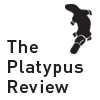
Recently, a series of exchanges between the Communist Party of Great Britain (PCC), the International Bolshevik Tendency, and the Platypus Affiliated Society has unfolded, mapping a field of positions and historical perspectives whose contours trace some of the most provocative contemporary perspectives on Marxism, socialism, and democracy.
With this public forum speakers will take stock of the points of convergence and divergence that have emerged in order to push the conversation further on key issues such as Left unity, neo-Kautskyism, factionalism, Trotskyism, sectarianism, Leninism and Bolshevism, democratic organization and political program. The event will feature:
James Turley (CPGB)
Bhaskar Sunkara (Jacobin)
Benjamin Blumberg (Platypus)
Please see the link below for a helpful compilation of debates between the Communist Party of Great Britain (PCC), the International Bolshevik Tendency, and the Platypus Affiliated Society.
The full compilation may be found here.
On May 9th, 2012, Platypus members Ross Wolfe and Benjamin Blumberg made an appearance on WBAI (99.5 FM) Occupy Wall Street Radio.
A panel discussion organized by the Platypus Affiliated Society, held on March 20, 2011 at Left Forum, Pace University.
Panel Abstract:
Marx and Engels were not the preeminent socialists but rather socialism's greatest critics, distinguishing their "communism" from "reactionary," "bourgeois" and "democratic" socialism. Lately, Marx is taken for his theoretical analysis of capitalism more than his and Engels's revolutionary politics, discredited after the 20th century's spectacular failures of "Marxism." So what is Marx and Engels's political legacy? What Marx wrote after the failed "social-democratic" revolutions of 1848 still resonates: "Every demand of the simplest bourgeois financial reform, of the most ordinary liberalism, of the most formal republicanism, of the most insipid democracy, is simultaneously castigated as an 'attempt on society' and stigmatized as 'socialism'." How does Marx and Engels's politics of "communism," that is, socialism aware of its historical vocation, task us today?
Benjamin Blumberg - University of Chicago
Nathan Smith - The Platypus Affiated Society
Pam Nogales - New York University
Richard Rubin - Platypus
Tana Forrester - The Platypus Affiliated Society

